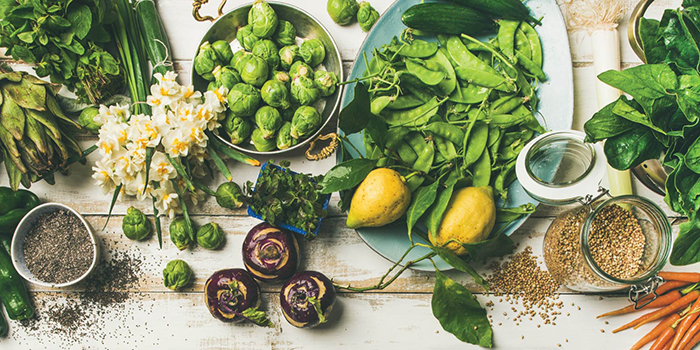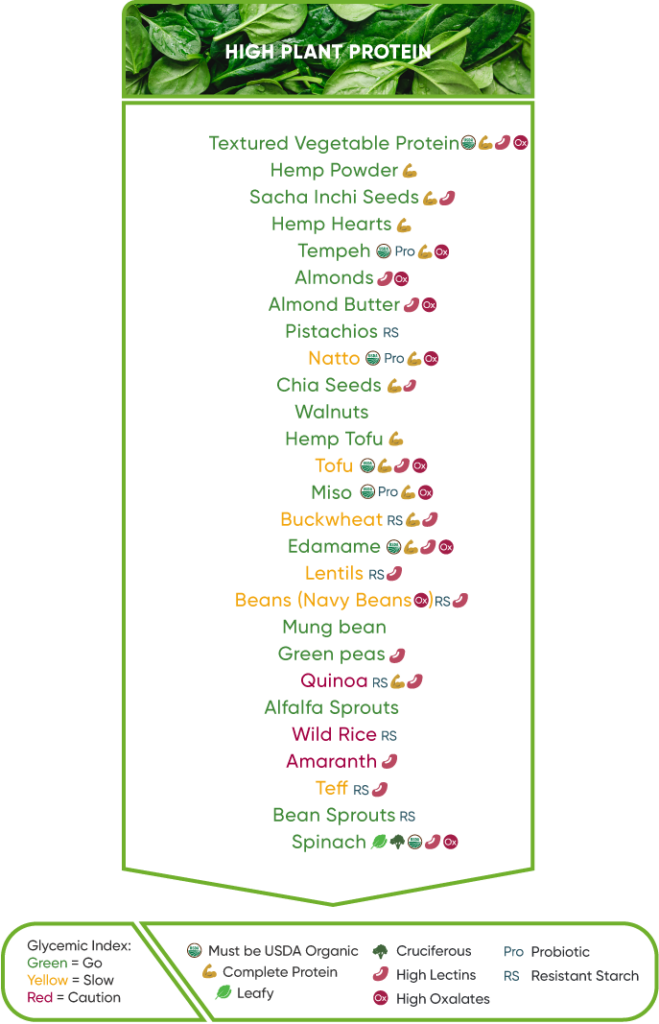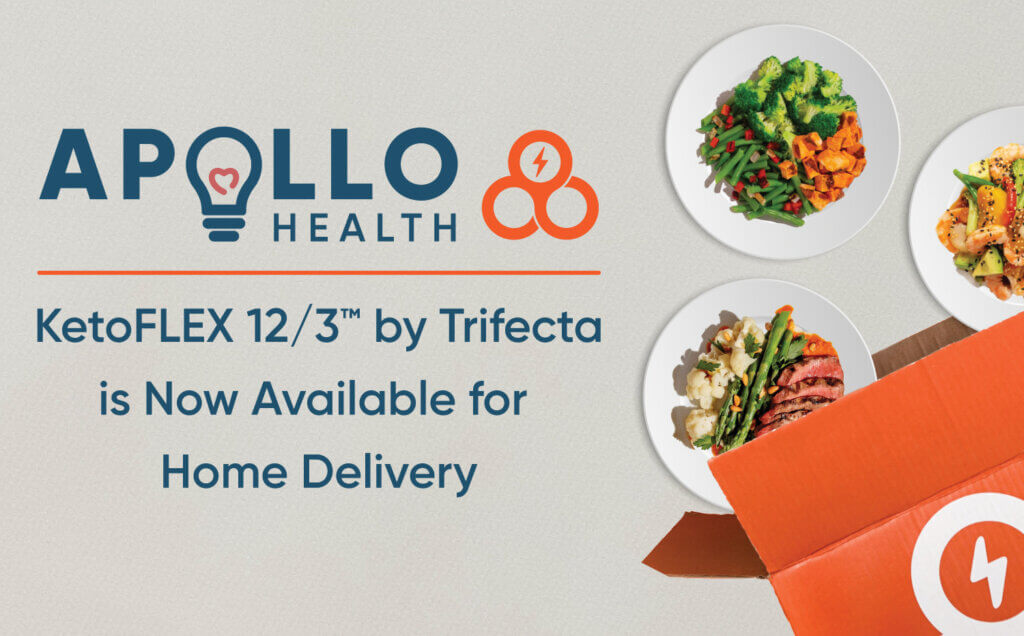May 9, 2023
KetoFLEX 12/3 for Vegans and Vegetarians


Because we fully embrace the healthful nature of phytonutrients, KetoFLEX 12/3 is heavily plant-based for everyone. We have tremendous respect for those who choose to avoid or minimize animal-based foods, but it’s important to be aware that there are some macro and micronutrients from animal protein that can be difficult to get from plant-based foods exclusively.
In fact, strict veganism (without supplementation) can lead to very similar nutritional deficiencies that we see in some Alzheimer’s patients: inadequate protein, low levels of Omega 3, choline, B12, Vitamin D, retinol, and zinc. All of these macro and micronutrients are vital for brain health, specifically synaptic formation, maintenance, and support, as well as many other bodily functions. It’s also important to ensure adequate vitamin K2 intake to enable the efficacy of Vitamin D and retinol while protecting your bones and arteries. Your genetics can also contribute to your body’s ability to utilize these nutrients. By being vigilant and carefully choosing food sources or supplementing when necessary to overcome these deficits, a diet free from animal products can be very healthful.
Omnivores don’t get a free pass on this one! EVERYONE, based upon their genetic susceptibilities and unique diet, is vulnerable to a deficiency in any of the nutrients discussed below that are vital for cognitive optimization and overall health.

Protein Vegans and vegetarians have to work a bit harder to ensure adequate protein from plant-based foods. Many, not all, lack some of the nine essential amino acids and come with anti-nutrients that can make it harder for your body to properly absorb the protein. By consuming a variety and large quantity of plant proteins, you can achieve exposure to all essential amino acids. Our Plant Protein chart offers the foods with the highest amount of proteins at the top, in descending order.
Buckwheat, chia, hemp, quinoa, sasha inchi seeds, and soy are examples of complete plant proteins that contain all nine essential amino acids. Buckwheat groats (after soaking) can be eaten raw or cooked and add a nutty earthiness when sprinkled into salads or cooked vegetables. Chia seeds can be soaked to reduce phytates and easily be incorporated into smoothies and chia puddings. Hemp hearts, the inside of hemp seeds, are delicious when sprinkled on salads. Unsweetened hemp milk is a great substitute for cow’s milk. Cooked quinoa can easily be added to salads and cooked vegetables, but it may need to be limited due to the high carbohydrate content. Let your blood glucose be your guide. Sasha inchi seeds (always roasted because of the high lectin content) are an excellent source of low carbohydrate complete protein and can easily be added to salads.
While soy may be controversial, we feel that within the context of KetoFLEX 12/3, it can be a healthy option when choosing USDA organic (always non-GMO), preferably fermented, to increase absorption. Tempeh, miso, and natto are also good options, as the fermentation process destroys some of the anti-nutrients. Organic tofu and edamame are fine but should be limited because of the phytates that can interfere with nutrient absorption, especially if you’re soy intolerant. We do not recommend any protein supplements (powders or bars), animal or plant-based. The only exception would be 100% powdered hemp.
Plant proteins are generally less bioavailable than animal proteins largely due to their anti-nutrients, including lectins, phytates, and oxalates. You’ll recall that these plant compounds reduce the absorption of nutrients from the digestive system. Properly preparing plant proteins (such as nuts, seeds, legumes, and vegetables) by using techniques such as soaking, sprouting, fermentation, and cooking can aid in addressing this issue. Optimizing GI health is also critical to improve nutrient absorption.
Omega-3 Alpha-linolenic acid (ALA) is a vegan source of omega-3 and is found in many healthful foods: chia seeds, Brussels sprouts, hemp seeds, walnuts, flax seeds, seaweed, and perilla oil. ALA, however, must be converted to the more bioactive EPA and DHA to provide the benefits necessary for optimal brain health. Unfortunately, the body’s ability to convert ALA is limited to 5% for EPA, while less than 0.5% is converted to DHA. This conversion ratio diminishes even further with specific genetics, gender (childbearing women convert more effectively), age, and ill health. Increasing food sources of ALA and supplementing with algal oil can be helpful for those who prefer not to eat fish.
Choline This is an essential nutrient that exerts a powerful neuroprotective effect. It’s a major component of membrane phospholipids such as phosphatidylcholine and a precursor to the neurotransmitter acetylcholine, which is critical for memory. Choline is necessary for the creation and maintenance of neural synapses. Supporting the cholinergic system is vital for the preservation of brain health. Many people are deficient in choline, but those who eat an exclusively plant-based diet are especially vulnerable. High amounts are found in many animal-based foods such as eggs, liver, and fish. Plant sources of choline include broccoli, almonds, walnuts, pinto beans, avocados, Brussels sprouts, swiss chard, and collard greens, but it’s difficult to meet your nutritional needs using only plant sources. Ovo-vegetarians can also use eggs to help reach their daily goal. Citicoline, lecithin, and alpha GPC are all plant-based supplements.
B-12 Vitamin B-12 is a vital nutrient for the brain and overall health. The bottom of the current U.S. reference range (200-900 pg/mL) is set too low, with anemia and dementia symptoms seen below 350 pg/mL, a supposedly “normal” level. B-12, in combination with folate and B6, is necessary for homocysteine optimization. Elevated homocysteine is associated with impaired cognition and increased brain atrophy. The recommended homocysteine goal is 7 µmol/L or lower, and it isn’t easy to achieve with suboptimal B-12.
There are a few select plants that provide B12: specific mushrooms (chanterelle, black trumpet, and shiitake) and edible algae called green or purple nori. Some fortified options include nutritional yeast (often used by vegans as a parmesan cheese substitute) and some versions of unsweetened almond and coconut milk. B-12 supplements are readily available. Sublingual methylcobalamin is a good source. Vegan True MethylCobalamin contains no animal-derived ingredients.
Vitamin D This is also known as the sunshine vitamin, but in our modern, predominantly sheltered lifestyle, few people get enough sun exposure to achieve optimal levels. Vitamin D binds to the vitamin D receptor, enters the nucleus, and turns on over 900 genes. One of the most important roles of vitamin D is the creation and maintenance of brain synapses. Reduced levels are associated with cognitive decline. The majority of foods high in Vitamin D are found in animal sources (oily fish and egg yolks), but mushrooms and fortified unsweetened almond and coconut milk are decent plant sources. Lacto-ovo vegetarians can get vitamin D through egg yolks, A2 milk, and cheese. Vitamin D2 is always plant-based. Vitamin D3 from lichen may be more bio-available and are also vegan-friendly. Note that anyone taking more than 1000 IU of vitamin D each day should include vitamin K2 (at least 100mcg). See more on vitamin K2 below.
Retinol/Vitamin A Vitamin A is composed of two retinoids: retinol and carotenoids, including beta-carotene. Beta-carotene is abundantly available in many plants, including sweet potatoes, carrots, and dark leafy greens. Retinol is found primarily in animal products such as cod liver oil, liver, kidney, eggs, and dairy. Many Caucasians have genetics that poorly converts beta-carotene to retinol rendering some vegans susceptible to a deficiency in this essential nutrient. Vitamin A is widely associated with good eye health and immune functioning. Even marginally low levels are associated with the development of Alzheimer’s disease. A recent study found low levels of retinol associated with an increased risk of developing cognitive decline. Eating plenty of foods rich in beta-carotene with a dietary source of fat (as vitamin A is fat-soluble) is often enough. Vegans, especially those genetically at risk, may want to ensure they have adequate levels. If supplementation is necessary, Vitamin A Retinal Palmitate from CYTOPLAN is a good vegan option.
Vitamin K2 The fat-soluble vitamins, particularly vitamin D and vitamin A, rely on adequate levels of vitamin K in order to operate efficiently. Vitamin K is vital for proper blood clotting and bone density, and it aids heart and cognitive health. There are two types of vitamin K: K1 and K2. Vitamin K2 is most important in directing calcium to the bones and away from the arteries, where it can do damage. Vitamin K1 is abundant in many leafy greens and vegetables, including kale, spinach, turnip greens, collards, Swiss chard, mustard greens, parsley, romaine, green leaf lettuce, Brussels sprouts, broccoli, cauliflower, and cabbage, but is poorly absorbed by the body. K2, on the other hand, is mainly found in animals, with the primary exception being natto, which many find difficult to eat because of its strong taste. Vegans can get some K2 from fermented foods like sauerkraut, plant-based kefir, unpasteurized kombucha, and vegan kimchi, but the amounts are inconsistent. There are vegan K2 supplements made from natto that can ensure adequate intake.
Zinc Too little zinc and too much copper are associated with dementia. These minerals have an interrelated antagonistic relationship. Without adequate zinc, copper builds up in the tissues of the body. This accumulation can have detrimental health effects. This is a common problem for strict vegans as their diet tends to be naturally low in zinc and high in copper. Zinc deficiency is also very common (especially in those taking proton pump inhibitors), affecting approximately one billion people globally. Zinc plays a vital role in the brain, as well as decreasing inflammation and boosting immune function. While zinc is abundant and highly bio-available in meat, eggs, and seafood, it’s also found in many legumes, including green and black soybeans (tofu and tempeh), chickpeas, lentils, and many nuts and seeds, including walnuts, cashews, almonds, pecans and seeds from pumpkin, sunflower, and hemp. Unfortunately, these plant sources are also high in anti-nutrients. For this reason, it’s very important to prepare them properly. Be aware that many legumes, nuts, and seeds are also high in copper, which must concurrently be reduced to create a healthful balance. For that reason, it may be wise to consider a small amount of supplementation. Fortified nutritional yeast is a good option. Two tablespoons provide 20% of your daily needs. If needed, vegan zinc supplements are widely available, but be careful not to over-supplement (15-20 mg maximum), as a little goes a long way.






